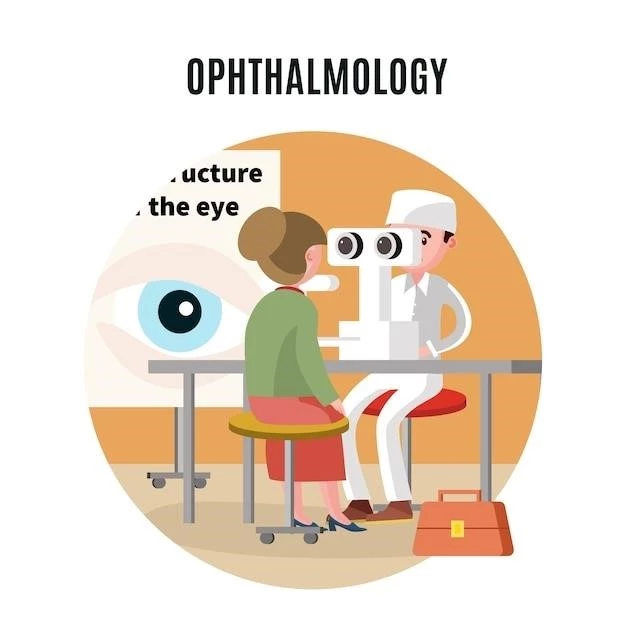Disease⁚ Pterygium Syndrome‚ Multiple
Multiple Pterygium Syndrome (MPS) is a rare genetic disorder characterized by joint contractures and soft tissue webs (pterygia) across various body parts. The syndrome presents with congenital anomalies like pterygia on the neck‚ elbows‚ and knees‚ causing joint restriction. MPS has both lethal and non-lethal types‚ each with distinct clinical features. Early diagnosis and genetic counseling are crucial for the management of MPS.
Patients with MPS may experience muscle weakness‚ growth retardation‚ facial abnormalities‚ and skeletal defects. The Escobar variant of MPS exhibits skin webbing and muscle movement impairments before birth‚ affecting the neck‚ fingers‚ elbows‚ and knees. Lethal MPS‚ a fatal form‚ is associated with skin‚ muscle‚ and skeletal anomalies‚ leading to severe arthrogryposis.
Diagnosis of MPS involves identifying characteristic symptoms like joint contractures‚ pterygia‚ and growth abnormalities through physical examination and genetic testing. Management strategies focus on supportive care‚ physiotherapy to improve muscle strength‚ and surgical interventions to address joint contractures. Continued research is essential to understand the genetic heterogeneity and improve outcomes for individuals with MPS.
Clinical Features and Characteristics
Multiple Pterygium Syndrome (MPS) presents with distinct clinical features‚ including joint contractures‚ soft tissue webs known as pterygia‚ and muscle weakness. Patients may exhibit congenital anomalies like skin webbing in various body parts such as the neck‚ elbows‚ and knees. Common characteristics include growth retardation‚ facial abnormalities‚ and skeletal defects. The Escobar variant of MPS particularly showcases skin webbing and muscle movement impairments before birth‚ affecting multiple joints.
Individuals with MPS often experience restricted joint movement due to joint contractures caused by the pterygia. This restriction can lead to muscle weakness and range of motion limitations. In severe cases of lethal MPS‚ manifestations include skin‚ muscle‚ and skeletal anomalies that result in significant arthrogryposis‚ a condition characterized by joint contractures and muscle weakness.
Diagnosis of MPS involves recognizing the typical features like joint contractures‚ pterygia‚ and growth abnormalities. Genetic testing is essential for confirming the diagnosis and identifying the specific type of MPS present. Management of MPS focuses on supportive care‚ addressing physical limitations through physiotherapy‚ and in some cases‚ surgical interventions to improve joint mobility and function.
Types of Multiple Pterygium Syndrome
Multiple Pterygium Syndrome (MPS) encompasses a spectrum of genetic disorders characterized by the presence of joint contractures and soft tissue webs (pterygia) across various body parts. The syndrome is classified into two main types⁚ lethal Multiple Pterygium Syndrome (LMPS) and non-lethal Multiple Pterygium Syndrome‚ also known as Escobar variant.
LMPS‚ a fatal form of the syndrome‚ is associated with severe anomalies affecting the skin‚ muscles‚ and skeleton. The condition is characterized by prenatal growth failure‚ presence of pterygia in multiple areas‚ akinesia resulting in muscle weakness‚ and severe arthrogryposis. Foetal hydrops with cystic hygroma is a common feature in affected pregnancies.
The non-lethal variant‚ the Escobar subtype‚ presents with skin webbing and muscle movement impairments before birth‚ affecting joints such as the neck‚ elbows‚ and knees. Individuals with Escobar-type MPS may experience restricted joint movement and muscle weakness‚ but the condition is non-fatal.
Understanding the distinct types of Multiple Pterygium Syndrome is crucial for accurate diagnosis and appropriate management strategies. Genetic testing and close medical monitoring are essential for individuals with MPS to address specific symptoms and provide tailored care based on the type of syndrome present.
Genetic Heterogeneity
Multiple Pterygium Syndrome (MPS) exhibits genetic heterogeneity with different variants and subtypes‚ contributing to the complexity of the condition. The syndrome comprises a group of rare genetic disorders characterized by joint contractures and soft tissue webs (pterygia) across the neck and various joints. It is essential to understand the diverse genetic components that manifest in MPS to tailor appropriate diagnostic and management approaches.
MPS is phenotypically and genetically diverse‚ with classifications into lethal and non-lethal types based on severity and outcomes. The lethal variant‚ known as Lethal Multiple Pterygium Syndrome (LMPS)‚ presents with severe anomalies affecting the skin‚ muscles‚ and skeleton‚ leading to prenatal growth failure and akinesia. On the other hand‚ the non-lethal variant‚ such as the Escobar type‚ showcases skin webbing and muscle impairments but is non-fatal.
Genetic testing plays a crucial role in identifying the specific genetic mutations responsible for MPS‚ allowing for personalized treatment strategies. Understanding the genetic heterogeneity of MPS aids in predicting disease progression‚ assessing associated risks‚ and providing comprehensive care plans tailored to the individual’s genetic profile.
Lethal Multiple Pterygium Syndrome (LMPS)
Lethal Multiple Pterygium Syndrome (LMPS) is a rare and severe genetic disorder characterized by anomalies affecting the skin‚ muscles‚ and skeleton. Prenatal growth failure is a hallmark of LMPS‚ with pterygia present in multiple areas coupled with akinesia‚ resulting in muscle weakness and severe arthrogryposis. Foetal hydrops with cystic hygroma can develop in affected foetuses with LMPS‚ indicating the critical nature of this condition.
LMPS is associated with life-threatening challenges due to the range of anomalies it presents‚ including joint contractures and muscle impairments. Understanding the distinct features of LMPS is crucial for early diagnosis and management to optimize care for individuals affected by this condition. Genetic testing is essential in confirming the presence of LMPS and providing insights into the specific genetic mutations associated with this lethal type of Multiple Pterygium Syndrome.
Diagnosis and Management
Diagnosis of Multiple Pterygium Syndrome involves recognizing characteristic features such as joint contractures and soft tissue webs. Genetic testing plays a crucial role in confirming the diagnosis and identifying the specific subtype of MPS present in an individual. Early diagnosis is essential to initiate appropriate management strategies and provide tailored care.
Management of Multiple Pterygium Syndrome focuses on addressing the symptoms and improving the quality of life for affected individuals. Supportive care‚ including physiotherapy to enhance muscle strength and flexibility‚ is often recommended. Surgical interventions may be necessary to address severe joint contractures and improve mobility.

Genetic counseling is an integral part of managing MPS‚ providing individuals and families with information about the genetic basis of the condition‚ inheritance patterns‚ and recurrence risks. Counseling helps in making informed decisions and understanding the implications of MPS on future generations.

Regular medical monitoring is crucial for individuals with Multiple Pterygium Syndrome to track disease progression‚ manage complications‚ and adjust treatment plans as needed. A multidisciplinary approach involving geneticists‚ orthopedic specialists‚ physical therapists‚ and other healthcare professionals can ensure comprehensive care for individuals with MPS.
